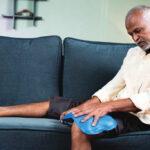Knee osteoarthritis (OA) affects 14 million Americans, approximately 50% of whom are obese. Together, obesity and knee OA result in the loss of 3.5 quality-adjusted life-years. Weight management and exercise are recommended by OA treatment guidelines, and multiple, randomized, controlled trials have shown diet and exercise may reduce the pain associated with knee OA.
However, the economic benefit of diet and exercise programs for overweight and obese knee OA patients has not been examined in detail. New research from Elena Losina, PhD, of the Orthopaedic and Arthritis Center for Outcomes Research, Policy and Innovation eValuation in Orthopaedic Treatments Research Center, Brigham and Women’s Hospital, and Harvard Medical School, Boston, and colleagues seeks to address this research gap.
Using the osteoarthritis policy model, which simulates knee OA patients based on demographic and clinical characteristics, researchers estimated the quality-adjusted life-years and lifetime costs for overweight and obese knee OA patients. With patient data from the Intensive Diet and Exercise for Arthritis (IDEA) trial, researchers created estimates for patients with and without the diet and exercise regimens. Researchers evaluated cost effectiveness using the incremental cost-effectiveness ratio, a ratio of the differences in lifetime cost and quality-adjusted life-years between treatment strategies. The analyses were conducted from healthcare sector and societal perspectives across a lifetime. The findings were published in the July 2019 issue of Arthritis Care & Research.
The Results
“The results of our analysis suggest that incorporating a diet and exercise regimen into usual care treatment for patients with knee OA would be highly cost effective from both societal and healthcare sector perspectives,” write the authors in their discussion. “Our findings strongly suggest that implementing diet and exercise in the treatment of knee OA provides good value and should be a priority for clinicians and policy makers.”
According to the study’s base case analysis, a diet and exercise program results in the gain of 5.4 quality-adjusted life-years for every 100 patients, increasing the per-person quality-adjusted life expectancy from 8.909 to 8.963 quality-adjusted life-years. From healthcare and social perspectives, the regimen raised the per-person costs by $1,845 and $1,624 respectively. These gains in quality-adjusted life-years resulted in an incremental cost-effectiveness ratio of $34,100/quality-adjusted life-years and $30,000/quality-adjusted life-years, respectively.
“Diet and exercise proved cost effective at all thresholds,” write the authors.
Patients also experienced improvement in quality of life from diet and exercise, which was demonstrated by decreases in body mass index and the WOMAC pain score. Although these scores were lower than baseline through Year 2, the diet and exercise regimen delayed, but did not avert, total knee replacement.


